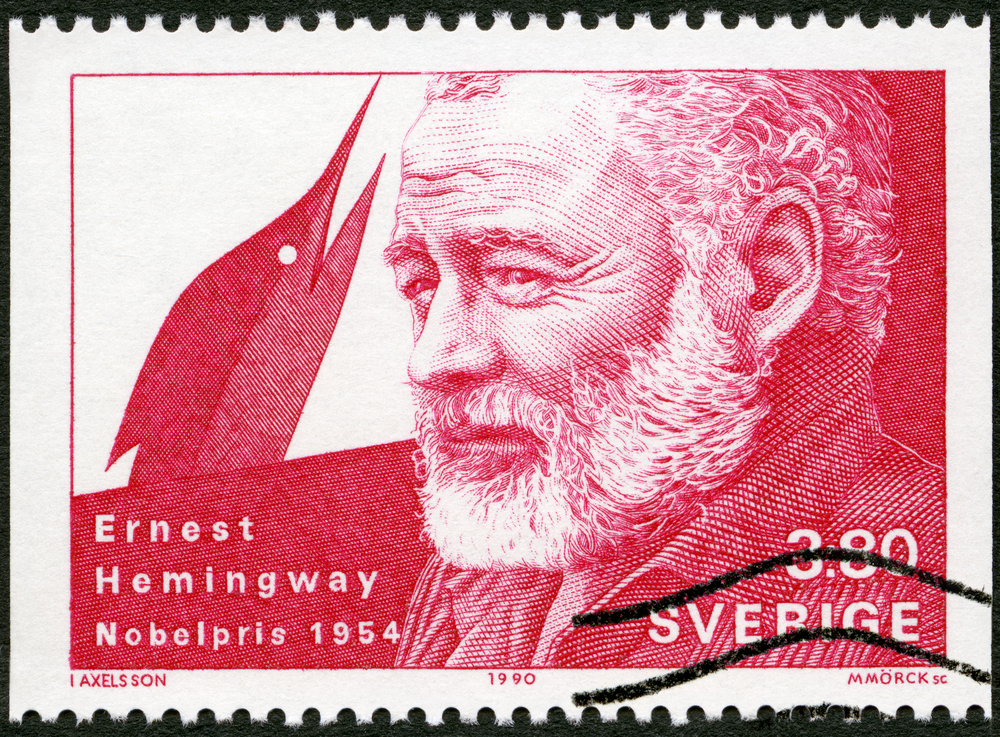Although it has only recently, with the advent of online purchasing and ebooks, become a household term, self-publishing has always existed as an alternative to traditional publishing. Here’s a list of some of the most influential writers of all-time who decided to self-publish.
1. Virginia Woolf
To escape the creative fetters of traditional publishing houses, Woolf and her husband started their own press, Hogarth, to self-publish their work. Both Mrs. Dalloway and To the Lighthouse were put out by Hogarth, on a handpress set up in Woolf’s living room. After Woolf’s death, the press became an imprint of the Crown Publishing Group, which exclusively publishes contemporary novels.
2. Ezra Pound
One of the figureheads of the modernist movement, Pound was unable to find a publisher for his first manuscript, A Lume Spento, despite submitting the work across multiple countries. Although he was precariously low on funds, he decided to self-publish his first collection and sell them on the street. After garnering a couple positive reviews, Pound was able to get his work into a popular London bookstore, where it caught the attention of the local literati and launched his poetry career.
3. Thomas Paine
Common Sense, cited as one of the key factors in America declaring independence from Britain, was independently published by Paine, anonymously, because of its treasonous content. The pamphlet went on to sell an estimated 500,000 copies in its first year, putting it in a higher percentage of American households than any work before or since.
4. Beatrix Potter
The author of The Tale of Peter Rabbit was asked by numerous publishers to alter her work before they would accept it for publication. Potter decided to self publish because she had a specific vision for her work: a vision that went on to sell 45 million copies in over thirty languages.
5. Jane Austen
Unable to get a traditional publisher interested in her work, Austen released both Emma and Sense & Sensibility on her own dime. Later, a publisher took notice and bought the rights to Northanger Abbey, but Austen ended up buying the book back because the publisher was taking too long to release it. If not for Austen’s ambition and desire to get her work into the world by any means, England would be short its first modern novelist.
6. Irma Rombauer
After the death of her husband, Rombauer wrote The Joy of Cooking as a way to occupy her time. For years, she peddled self-published editions of her book from her apartment for a dollar each. Eventually, a major publisher took notice, and the book has been in print continuously ever since, now in its eighth edition.
7. Ernest Hemingway
While working as a journalist in Paris, Hemingway privately published his first collection, Three Stories and Ten Poems. Although the print run was only 300 copies, thanks to the miracles of technology, you can now pick up a digital copy free as an ebook.
Did any of these names surprise you? Have any self-published favorites that we forgot to mention? Let us know in the comments!


I never knew Hemingway published a collection himself. Taken totally by surprise. I reblogged it here: http://goo.gl/pz1VHG.
8. Charles Dickens He self-published A Christmas Carol. Word was he agonized over the binding and fonts and such.
He self-published A Christmas Carol. Word was he agonized over the binding and fonts and such.
Walt Whitman!
http://www.indiependents.org/famous-classics.html
This is an outstanding article. Thank you very much for placing it.I would like to know if I may have permission to also publish it in my newsletter. Please let me know. The writers organization would enjoy reading this.
There are dozens more master writers who were fed up with the status quo.
Mark Twain comes to mind first.
All the Best
Of course! Just make sure to credit us.
Let us not overlook the work of dear Benjamin Franklin. Though known primarily as inventor and politician, his book of advice and proverbs is still quoted and used amongst the general population well after 1758!!!
How about Henry K. Ripplinger? He may be well known in Canada, but one day, his work will be referred to as the classics!